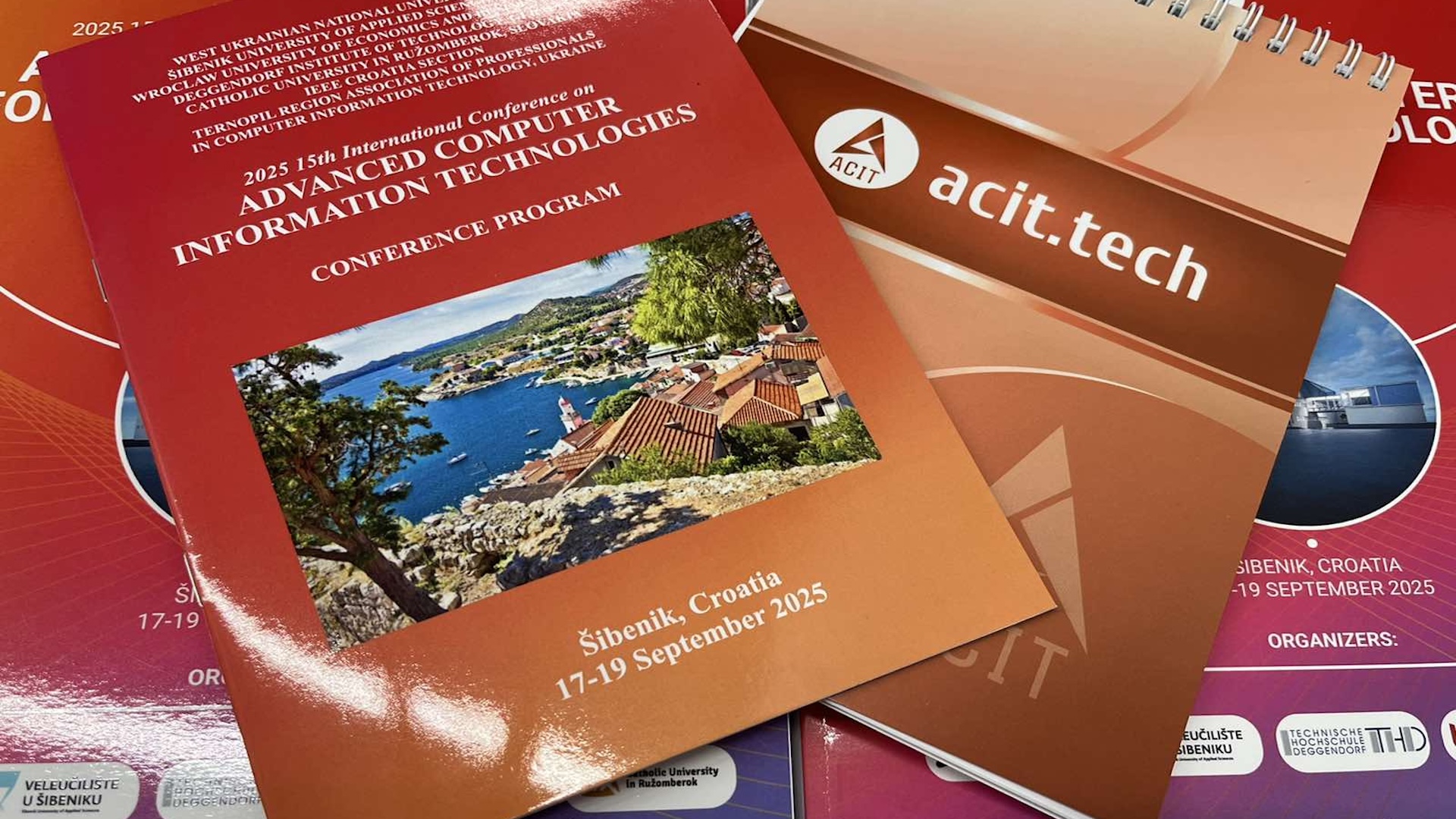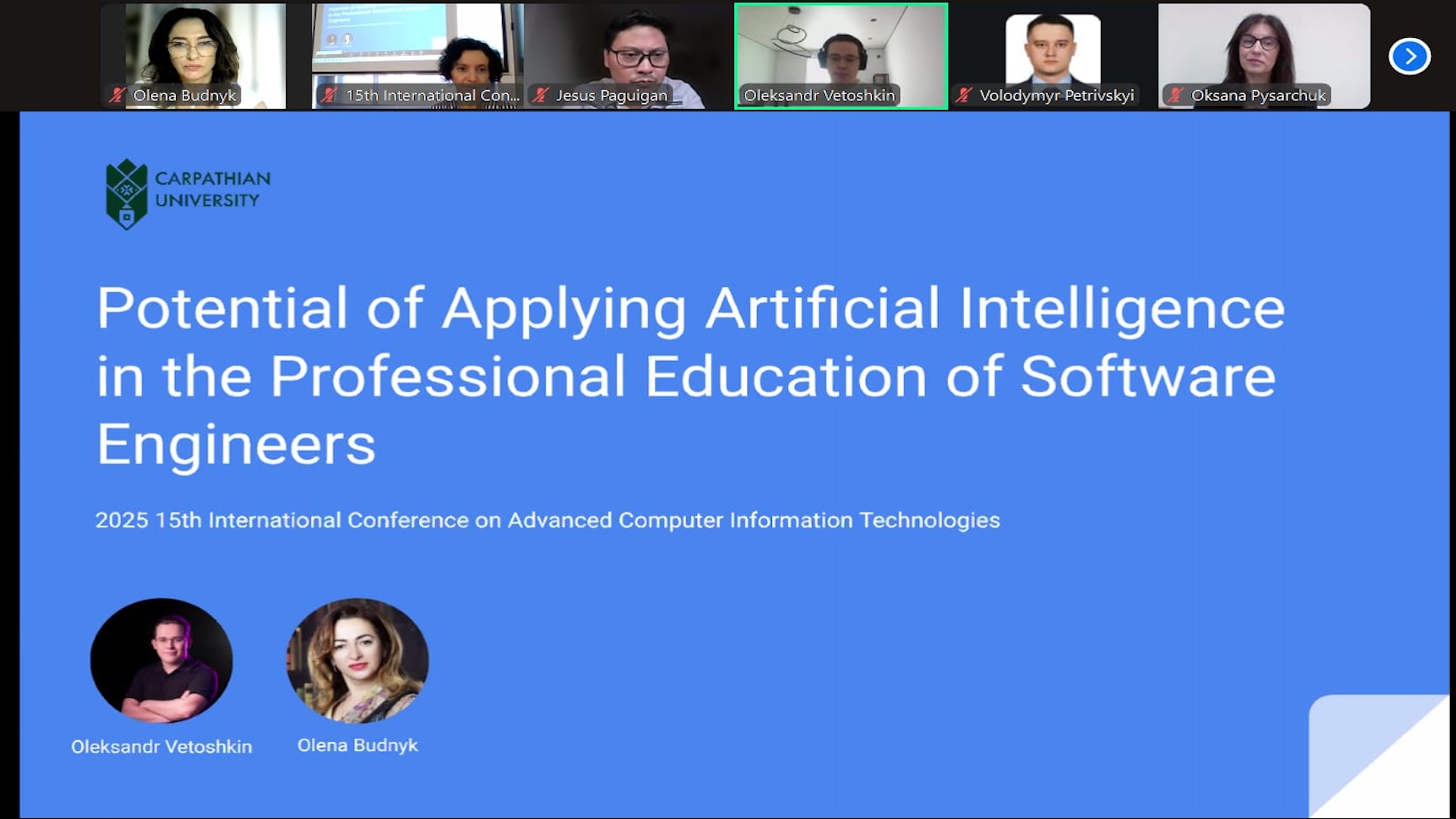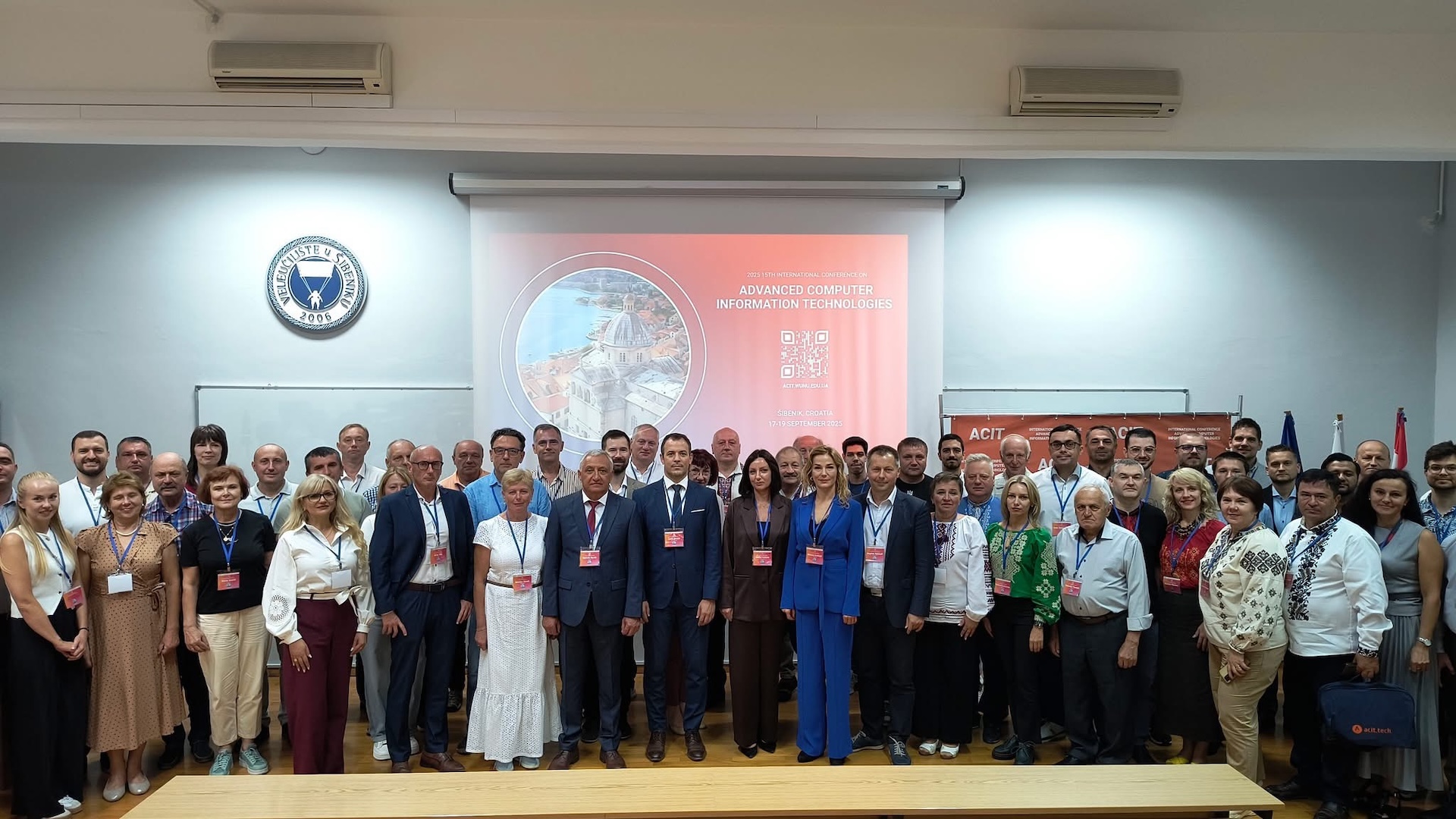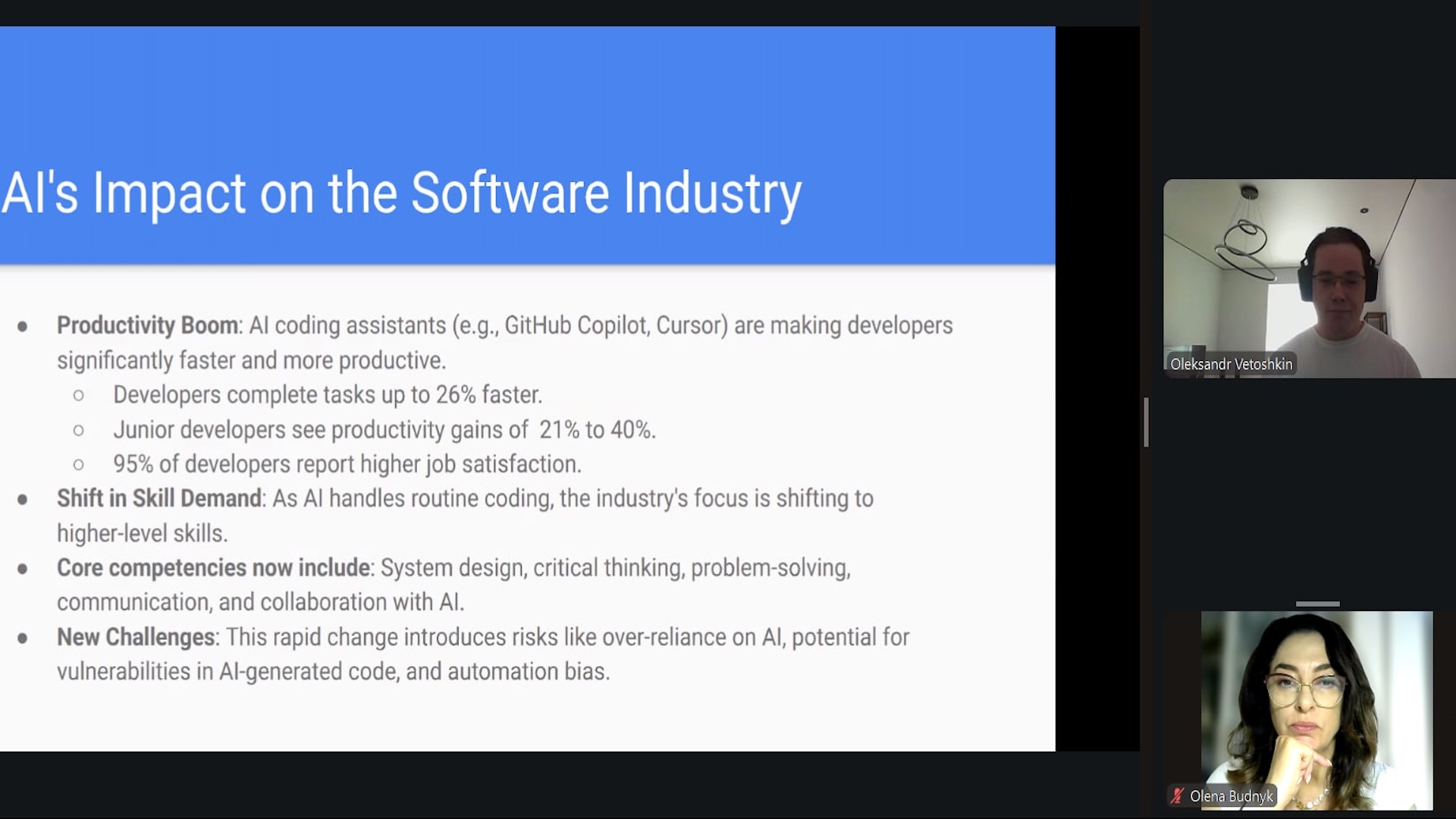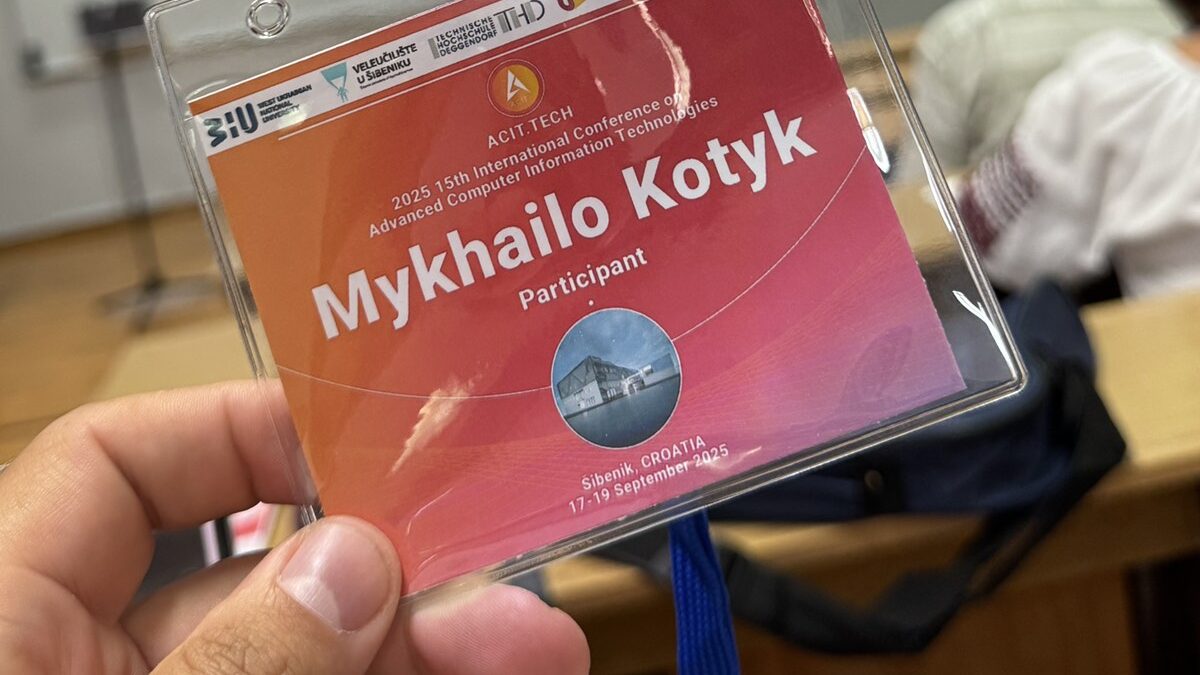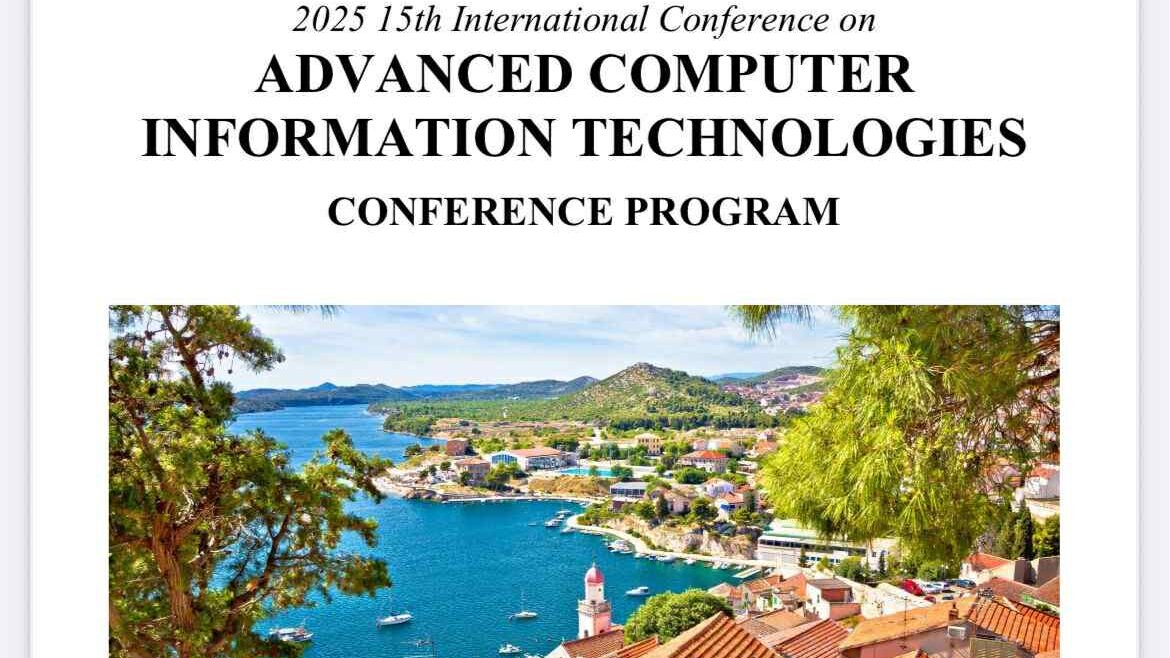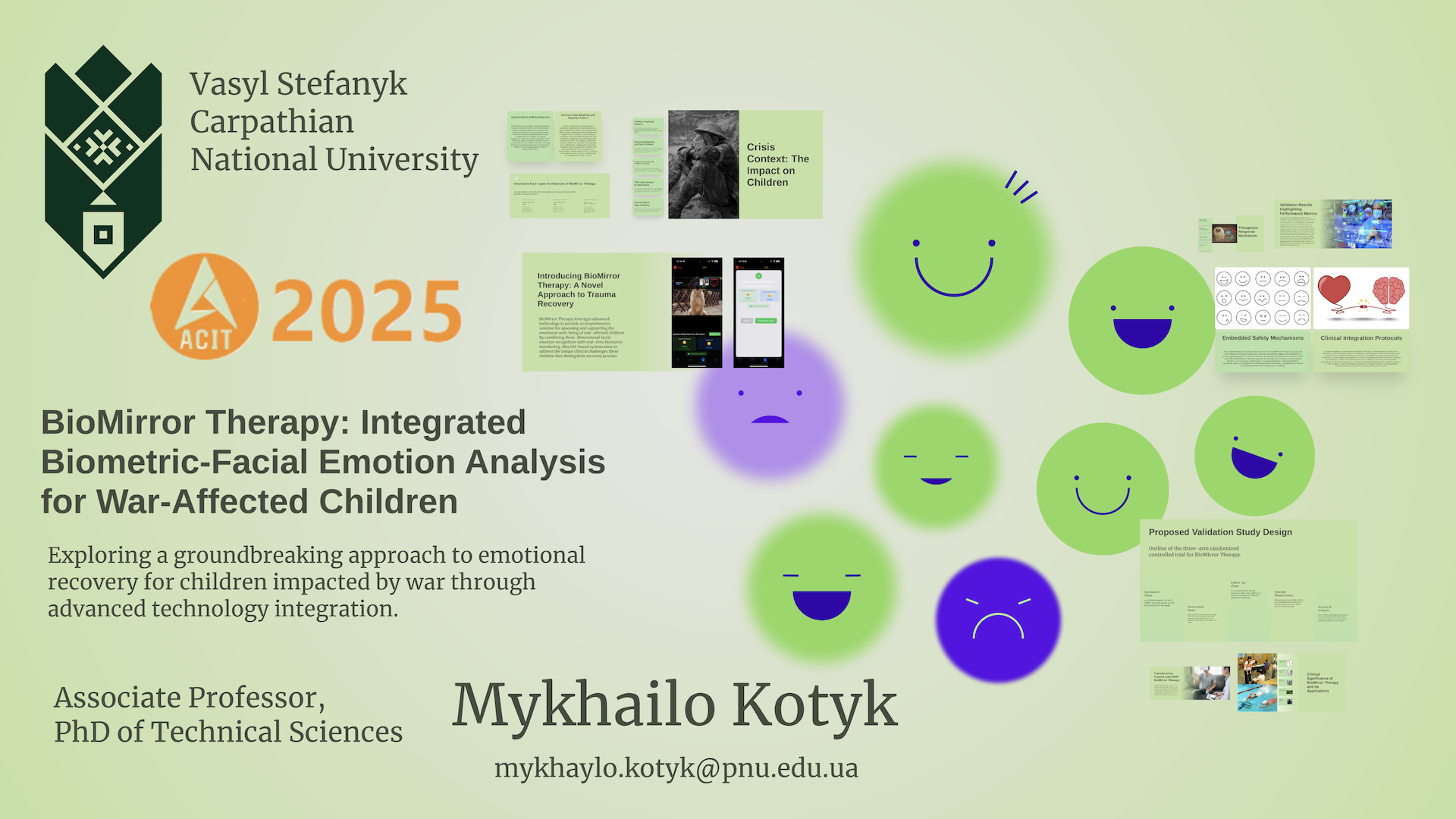From September 17 to 19, 2025, the 15th International Conference on Advanced Computer Information Technologies (ACIT-2025) was held in Šibenik, Croatia. Representatives of the Center for Innovative Educational Technologies “PNU EcoSystem” took part: Professor Olena Budnyk, Associate Professor Mykhailo Kotyk, and PhD student Oleksandr Vetoshkin. The event was organized by the West Ukrainian National University in cooperation with the University of Applied Sciences in Šibenik (Croatia), Wroclaw University of Economics (Poland), Deggendorf Institute of Technology (Germany), and Catholic University in Ružomberok (Slovakia).
In their presentation “Potential of Applying Artificial Intelligence in the Professional Education of Software Engineers”, the Center’s Director Olena Budnyk and second-year PhD student in specialty 015 Professional Education, Oleksandr Vetoshkin, outlined key approaches to training future engineers with the help of artificial intelligence (AI) technologies. They highlighted how AI-based tools can assist in: performing routine tasks; providing instant feedback to students; and fostering higher-order skills such as critical thinking and systems design. Furthermore, they proposed an innovative model of collaboration between a student, the AI system, and the teacher, enabling the creation of an effective personalized learning environment for professional training.
Associate Professor Mykhailo Kotyk presented in person at the “Information Technologies in Education” section the innovative development “BioMirror Therapy: A Conceptual System for Integrated Biometric-Facial Emotion Analysis in the Rehabilitation of War-Affected Children.” The presented system employs iPhone technologies with a LiDAR scanner for 3D facial emotion recognition and an Apple Watch for monitoring physiological indicators. The uniqueness of this development lies in its ability to detect hidden emotional states of traumatized children through the analysis of emotional coherence – the correlation between facial expressions and physiological reactions of the body. Notably, preliminary technical validation showed an 87.3% accuracy in recognizing basic emotions and the ability to detect microexpressions lasting 200–500 milliseconds. Unsurprisingly, the work attracted significant interest from the international scientific community, as it offers an innovative approach to psychological support for millions of children affected by the war in Ukraine.
The event was held in a hybrid format (offline and online) and gathered 207 participants from more than 60 countries worldwide. Such international meetings provide a deeper exploration of current scientific challenges, particularly at the intersection of professional education and computer technologies, which is essential for further research.
The conference proceedings, to be published following the event, will be indexed in the international scientometric databases Scopus and IEEE Xplore.

